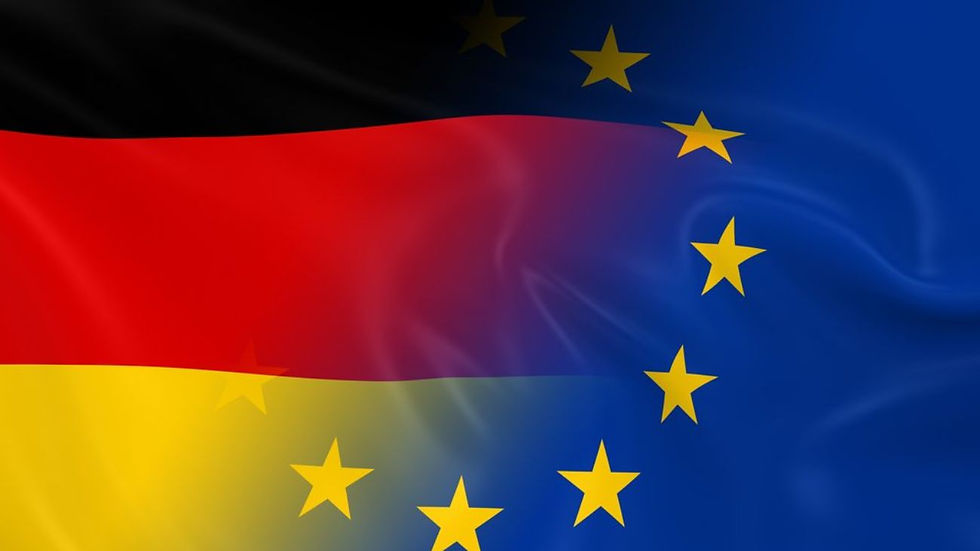The Case for American Exceptionalism as Global Hegemon
- Oliver Green

- Sep 22, 2019
- 4 min read
Updated: Feb 26, 2024

By Oliver Green
The United States became the world’s largest economy by nominal GDP in 1872 and a global hegemon in 1991, and will remain so for the duration of the 21st Century. It’s still very much in the ascendancy phase of its political and economic strength, being a very young global hegemon with great untapped potential, just as Rome was after the Second Punic War. As of 2019 its economy stood at over $21 Trillion and still accounts for nearly a quarter of global GDP.
However, since leading the free world to victory in the Cold War, with the main obstacle of Communism out of the way, much of what we used to regard as the developing and third worlds have been catching up and incorporating free market Capitalism, and as a result achieving many cutting edge scientific advances through research and development, as well as increasingly high quality education systems and securing massive investments in their once archaic infrastructures. However, the US Dollar is still the world’s reserve currency and will remain so for the foreseeable future, mainly because it forces the world to sell to America and do business with the US in order to obtain enough foreign exchange reserves of Dollars to buy oil and other essential commodities.
The Organisation of Petroleum Exporting Countries (OPEC) will only accept US Dollars in payment for its oil. The other exceptional factor of America is of course its continuing military dominance, as it has complete dominance of the global commons of land, sea, air and space, well beyond what even Britain was able to do between 1815 and 1914. In addition, America’s military annual spend of around $650 Billion is still more than the next seven major military spenders of China, Saudi Arabia, India, France, Russia, Britain and Germany combined.
But the true power of the United States is often obscured by a deliberately fragmented political system of excessive checks and balances of mid-term elections and competing houses of Congress, which was designed to resist the rule of a Hanoverian King in the 18th Century, which can and often does impede its ability to tackle its domestic challenges, such as rebuilding its ailing infrastructure. For instance, America now finds itself in 29th place for internet broadband speed out of 34 in the OECD. The United States has also ended up with a relatively stalling education system by global standards, a major example of this being that 50% of PHD candidates in America are now foreign born, and most if not all of the new cutting edge developments coming out of silicon valley are from first generation immigrants to America.
But, this is nothing new, as America has always stolen the best and brightest from around the world, and financing most of its new innovations after having been started overseas, such as British jet technology and radar, and especially after World War II when German scientists and engineers like Werner von Braun were employed to develop the Apollo program and intercontinental ballistic missile and rocket technology. Arguably, the Manhattan Project wouldn’t have been a success without British involvement. So, this should not be taken as a cause for concern, as America was built upon and has always been based upon immigration, still attracting the best and brightest with the famous genius H1B visa, and more importantly its cash.
Furthermore, despite its many domestic challenges and political turmoil, the strategic power and global hegemony of the United States protects it from its own home-grown inadequacies, allowing it to monopolise and control and run global economy as established at Bretton Woods in 1944. Firstly it possesses the world’s current reserve currency, which the rest of the world must have in order to buy Oil and participate properly in global trade. Secondly, as previously stated it still accounts for around a quarter of global GDP, despite only accounting for around 5% of the world’s population. In addition, as I explain in my article on the Political Economy of modern China, the Chinese economy has some serious and deep structural defects, and is in no position to supplant the United States as a global hegemony any time soon, and certainly not the European Union which is now due to pass into history having proved totally dysfunctional, unfit for the challenges it faces and an affront to representative western democracy.
Therefore, the United States is and will continue to be in the words of Madeleine Albright “the indispensable nation” and will continue to be the world’s only global hegemony for the duration of the 21st Century, remaining exceptional, having already become energy independent and a net oil exporter, whilst retaining the cutting edge R&D, investment capital and expertise required to monopolise future energy development and technology. In addition, it is still considerably underpopulated for its geographical size, ranking third in the world at 9,832 square km, larger than China, but with a population in 2019 of a mere 330 million, and projected to become the world’s third most populated nation by 2040.









Comments